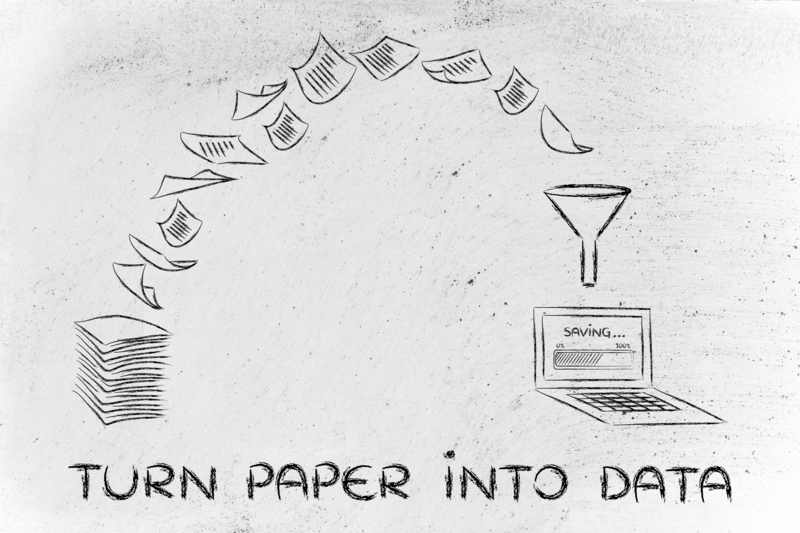Master the Art of Effective Recycling with Our Expert Tips
Are you passionate about making your home and community eco-friendly? Effective recycling is a powerful way to protect the environment, conserve resources, and reduce landfill waste. In this comprehensive guide, we'll help you master the art of recycling with detailed expert advice, practical tips, and actionable strategies. Whether you're a beginner or a committed environmentalist, these insights will empower you to recycle smarter and more efficiently.
Why Effective Recycling Matters
Recycling is more than just tossing bottles and papers into the correct bin. Implementing best recycling practices ensures that valuable materials are actually reused instead of ending up in landfills. Here's why effective recycling strategies are so important:
- Conserves natural resources - Recycling reduces the need to extract, refine, and process raw materials, which can harm ecosystems.
- Saves energy - Producing new products from recycled material typically requires less energy.
- Reduces greenhouse gas emissions - Lower energy use means fewer carbon emissions contributing to climate change.
- Supports the circular economy - Keeps materials in use for as long as possible, reducing overall waste.
- Decreases landfill use - Extends landfill lifespans and minimizes the harmful environmental impact.
Understanding the Recycling Process
To master the art of recycling, it helps to know what happens after your materials leave the curb. Most recycling undergoes these stages:
- Collection & Transportation: Recyclables are picked up and sent to sorting centers.
- Sorting: Advanced machines and workers sort materials by type (plastic, metal, paper, etc.).
- Cleaning: Materials are washed to remove contaminants and non-recyclables.
- Processing: Cleaned items are processed into raw materials for manufacturing.
- Manufacturing: New products are made from the recovered resources.

Expert Tips for Mastering Recycling at Home
Ready to elevate your recycling routine? These expert recycling tips will help you avoid common mistakes and unlock the full potential of your efforts:
1. Know Your Local Rules
Recycling regulations can vary from city to city. Check your municipality's guidelines for recycling to ensure you're sorting your waste correctly. Download the latest recycling calendar, accepted items list, and collection schedules for your area.
2. Keep It Clean
Contaminated recyclables (like greasy pizza boxes or peanut butter jars with residue) can ruin entire batches. To maximize your impact:
- Rinse food and drink containers before recycling.
- Let them dry to prevent moistening paper and cardboard.
- Remove lids or caps and recycle them separately if possible.
3. Separate Your Materials
Most programs require separating materials such as paper, glass, and plastics. Use dedicated bins and set up a simple home recycling station to stay organized.
- Label bins clearly for different recyclables.
- Keep your recycling area clean and accessible so everyone at home participates.
4. Handle Plastics Like a Pro
Plastics have different recycling codes (1-7), and not all are accepted. Ensure you:
- Check the plastic type and local acceptance before recycling.
- Avoid wish-cycling (putting unaccepted plastics in the bin hoping they'll be recycled).
- Recycle plastic bags at special collection points rather than curbside bins.
5. Flatten Cardboard and Crush Cans
Help your recycling collector by flattening cardboard boxes and crushing cans. This saves space and reduces transportation emissions.
6. Say NO to "Tanglers"
Items like hoses, electrical cords, hangers, and string lights can jam sorting machines and cause major disruptions. Properly dispose of these tanglers at dedicated drop-off centers or re-use them when possible.
7. Avoid "Wishful Recycling"
Wish-cycling means tossing unaccepted or dirty items into the recycling bin in hopes they'll be handled. Instead:
- Refer to your local program's accepted items list before recycling.
- If you're unsure, throw it out--just one contaminated item can spoil an entire batch.
8. Recycle Electronics and Hazardous Waste Responsibly
Batteries, electronics, paint, and chemicals should never go in your curbside bin. Find community hazardous waste collection events or specialized drop-off points.
9. Purchase Recycled Products
Support the circular economy by buying products made from recycled materials, from notebooks and office paper to bags and clothing.
10. Compost Organics
Food scraps, yard trimmings, and other organic waste are not recyclable through most curbside programs but are perfect for composting. Start a compost bin at home to reduce landfill waste and enrich your garden soil.
Advanced Recycling Techniques and Strategies
To truly master effective recycling, take your practices beyond the basics. Consider these advanced methods to make a bigger impact in your community:
Community Engagement
- Lead by Example: Educate neighbors about good recycling habits.
- Host or participate in local recycling drives and cleanup events.
- Work with apartment complexes or homeowner associations to improve communal recycling access.
Zero-Waste Lifestyle Choices
- Buy in bulk to reduce packaging waste.
- Choose reusable containers and bags instead of single-use plastics.
- Repair and repurpose items before discarding.
Support Extended Producer Responsibility (EPR)
Advocate for policies or brands that take responsibility for their product's end-of-life, ensuring items are recyclable and use sustainable packaging.
Common Recycling Myths Debunked
Don't let misunderstandings trip up your recycling success. Let's clarify a few widespread misconceptions:
- Myth: All plastics are recyclable.
Fact: Only certain types (often labeled 1 and 2) are widely accepted. Check local guidelines. - Myth: Items smaller than a credit card are recyclable.
Fact: Small items often fall through machines and end up in the landfill. - Myth: Recyclables don't need to be clean.
Fact: Clean recyclables are more likely to be processed effectively.
What Shouldn't Go in Your Recycling Bin?
- Plastic bags/wraps (unless specified at store collection points)
- Greasy/soiled food containers
- Styrofoam
- Ceramics and broken glass
- Hazardous waste
- Clothing/textiles (donate or use textile-specific recycling)
Always verify with your local recycling authority to avoid contaminating the recycling stream.
Tips for Recycling at Work and On-the-Go
- Set up well-labeled recycling stations in break rooms and common areas.
- Appoint a "green ambassador" in your workplace to monitor and encourage responsible recycling habits.
- Reduce single-use items like disposable coffee cups or water bottles by bringing reusable alternatives.
- Encourage digital workflow to cut down on paper waste.
- Recycling on the go? Bring a small reusable bag for collection until you find the right recycling bin.
Useful Resources for Mastering Recycling
- Earth911 (www.earth911.com), a database to find local recycling solutions by item type and ZIP code.
- The US EPA provides comprehensive guidelines and latest recycling news: epa.gov/recycle.
- Local Government Websites for up-to-date municipal instructions and collection schedules.
- Community Eco Groups and social media pages for shared tips and local recycling events.
FAQs About Effective Recycling
Is recycling really worth it?
Absolutely. While recycling is only part of the sustainability puzzle, it makes a serious difference when done correctly. Keep learning, keep improving, and encourage others to join you.
What happens if I recycle something incorrectly?
It can contaminate the batch, making recycling less efficient and possibly sending perfectly good materials to landfill. Always follow local guidelines.
How clean do recyclables need to be?
They should be free of food and residue, but don't worry about making them spotless. A quick rinse is usually enough.

Conclusion: Become a Recycling Maestro Today
Mastering the art of effective recycling demands more than good intentions--it requires knowledge, attention, and action. By following the strategies outlined above, you can maximize your recycling efficiency, reduce waste, and inspire those around you.
Start with small steps at home and at work, expand your knowledge, and stay committed to ongoing improvement. Every bottle, can, and carton you recycle makes a difference! Join the movement and become a true recycling expert today.
Take Action Now!
- Set a recycling goal for your household or office.
- Sign up for recycling updates from your local authority.
- Share these expert recycling tips with friends and family.
With your effective recycling efforts, the journey to a cleaner, greener planet starts right now.